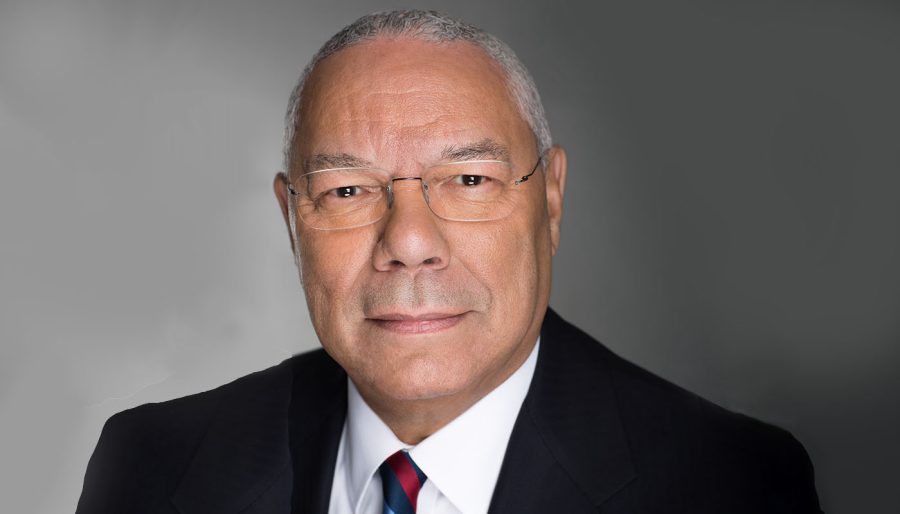Colin Powell
In honor of Black History Month, every school day The Cardinal will feature a prominent and historical Black American, living or dead, who has worked toward change, advancement, and/or world peace. Some of them are heroes, and some are unsung heroes, who deserve recognition, and have made a contribution to society.
February 16, 2022
Colin Powell was born to Jamaican immigrant parents on April 5, 1937, in the Harlem neighborhood of New York City. Having been born in what is nicknamed “black Mecca,” Powell was destined to lead an influential life, sparking memories of the Harlem Renaissance. Powell grew up in the South Bronx and earned his bachelor’s degree in geology at the City College of New York in 1958. In addition, he graduated from the college’s ROTC program and was commissioned as a US Army 2nd Lieutenant. He recalls joining ROTC in college as one of the happiest moments in his life because he found something that he loved and did well.
For 35 years, Powell called the US Army home and held various positions within it, eventually rising to the highest peacetime rank of General. During his time as a Lieutenant Colonel in South Korea, he looked up to General Henry Emerson for his commitment to easing racial tensions within the division. As one of Powell’s most important mentors, he inspired Powell’s future level-headed responses in crises. One instance of this was during a 1970s race riot perpetrated by black militants that almost killed a white officer. Powell cracked down on the extremists and his efforts led to the discharge of one soldier. Regardless of race, Powell responded appropriately to protect all servicemembers. Like Emerson, Powell believed in looking out for the welfare of all soldiers as well as promoting racial harmony to ensure the former.
In 1989, President George H.W. Bush selected Colin Powell as the 12th Chairman of the Joint Chiefs of Staff, the highest military position in the Department of Defense. Bush promoted Powell to four-star General, making history as Powell was the youngest officer and the first African-American to serve in the position. Powell’s tenure lasted from October 1, 1989, to September 30, 1993.
As the senior military adviser to the president, his responses to crises earned him the nickname “the reluctant warrior”. Powell rarely supported military intervention as the first course of action to resolve international crises. Instead, he suggested exhausting peaceful methods of diplomacy and containment to quell the enemy instead. He was an outspoken proponent for preserving American lives. Powell only advised entering conflicts when high chances of success and minimal casualties were visible.
General Colin Powell has led a successful life and continues to exert great influence today. The armed forces have been transitioning to a meritocracy since Truman’s Executive Order 9981 in 1948 to allow anyone regardless of color to rise through the ranks if they prove to deserve it. Powell recognized the need for a unified military and answered his nation’s call. General Colin Powell is a role model for millions of young African-Americans and Americans alike, exemplifying patriotism, solidarity, and confidence in one’s own abilities.
On October 18, 2021, Powell, who was being treated for multiple myeloma, died at Walter Reed National Military Medical Center of complications from COVID-19 at the age of 84. He had been vaccinated, but his myeloma compromised his immune system; he also had early-stage Parkinson’s disease.


